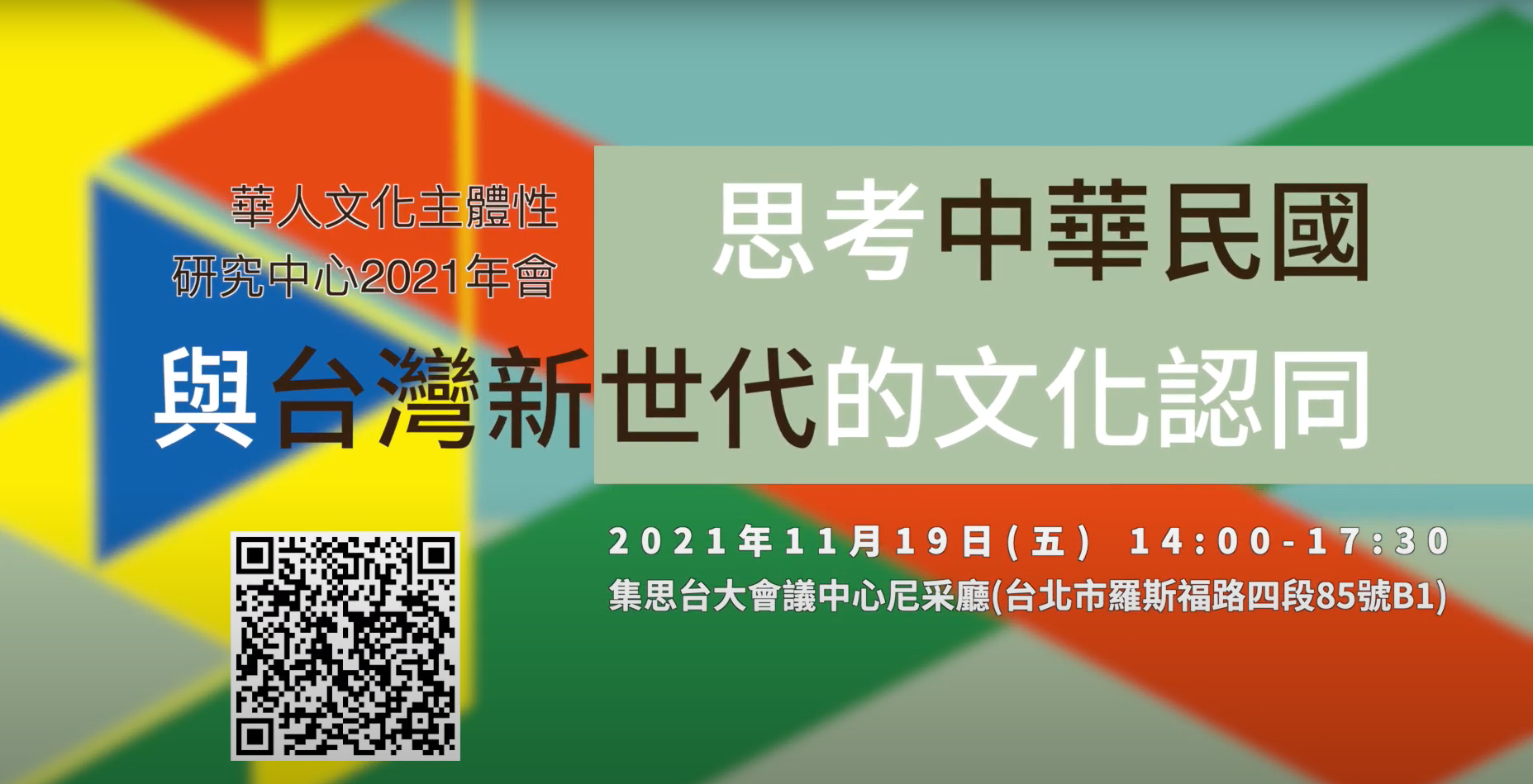政治大學華人文化主體性研究中心2021年會
《思考中華民國》
與台灣新世代的文化認同
宣傳影片
2021年會系列活動
系列活動一
《思考中華民國》與台灣新世代的文化認同
時間:2021年11月19日(五)14:00-17:30
地點:集思台大會議中心 尼采廳 (台北市羅斯福路四段85號B1)
14:10 - 15:50《思考中華民國》
主持人:林遠澤(華人文化主體性研究中心主任、政治大學哲學系特聘教授兼系主任)
主講人:楊儒賓(國立清華大學哲學研究所講座教授)
與談人:葉 浩(國立政治大學政治學系副教授) 楊孟軒(美國密蘇里大學歷史系副教授)
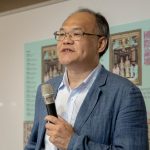
主持人林遠澤
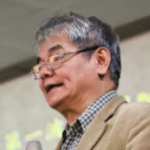
主講人楊儒賓
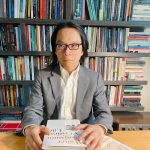
與談人葉 浩
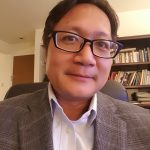
與談人楊孟軒

綜合討論
15:50 - 16:00 中場休息
16:00-17:30 「台灣新世代的文化認同」青年學者論壇
主持人:李維倫(政大華人文化主體性研究中心副主任、國立政治大學哲學系教授)
與談人:鍾秩維(天主教輔仁大學中國文學系助理教授)
李雨鍾(國立臺灣師範大學國文學系博士級研究員)
梁 靧(國立臺灣大學哲學所博士生)
林淑芬(國立政治大學華人文化主體性研究中心博士級研究員)
葉先秦(國立政治大學華人文化主體性研究中心博士級研究員)
(每位與談人發言12分鐘)
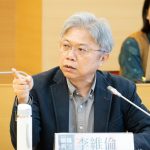
主持人李維倫

與談人鍾秩維
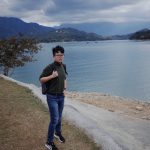
與談人李雨鍾

與談人梁 靧
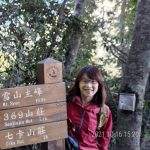
與談人林淑芬
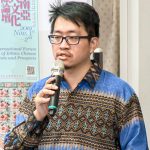
與談人葉先秦

綜合討論
系列活動二
華人文化認同的危機與重建 研討會
時間:2021年11月20日(六) 9:00~17:00 2021年11月21日(日) 9:00~12:00
地點:國立政治大學 行政大樓七樓會議室二、三、五
中心簡介 #Introduction
面對當前全球華人與中國的崛起,歐美的傳統漢學與中國研究需要更多契機的注入。臺灣因特殊的歷史經驗,不僅更好地保存中國文化,又能在西方文化衝擊下對中國文化進行現代化的融通與轉型,亟能承擔重建華人學術傳統、引領國際建立新漢學研究典範的重責大任。
本研究中心獲得臺灣教育部高教深耕計畫補助成立後,自覺地嘗試立基在「全球東方」的潮流中,以「華語語系」(sinophone)概念切入,將研究視野從傳統的「漢學」(Sinology)與「中國研究」(Chinese Studies),擴大到全球各地使用「華語語系」的文化社群。本中心透過研究全球脈絡下的華人的文化表現,反溯華人的思維、感受、時空概念與超越性等主體性範疇,以回答「華人是誰?」的問題;一方面建構非基於血統與國籍等種族與政治身分的華人概念,另一方面,也使「人」的概念界定不受西方中心主義的局限。
相對於目前中國(或漢族)中心主義的警惕與反離散之本土認同的緊張對立,本中心的華人文化研究範圍涵蓋中國大陸、臺、港、北美、東亞、東南亞等華人社群。我們對多元的華人文化表現保持開放的態度,不僅探討華人文化在不同地區的發展,更探討全球化過程中與世界其他文化的交流互動;在另一方面,又避免陷入漢族中心主義的窠臼,更好地把握華人文化的共同核心。期望以此讓華人文化主體性的研究能跳脫傳統中國漢文化為中心的單一論述,透過比較與其他文化的差異,進而產生對自身所屬文化的認同,並為全球文明的豐富多樣性做出貢獻。
Introduction to the “Research Center for Chinese Cultural Subjectivity in Taiwan”
Chinese culture is not only an essential component of Chinese-speaking societies but also a common legacy for the whole of humanity. The study of Chinese civilization and history has thrived in various aspects through a long period of time. In the present, the rise of China naturally attracts attention across the globe. However, in Western academia, the investigation of Chinese culture is often relegated to area studies with highly specialized research paradigms according to which the various aspects of Chinese culture can only be objects of historical research. Instead, our research center wants to demonstrate that academic theory-making can also happen in a non-Western context, through the use of Chinese cultural concepts and discourses. While we use a broad array of methodologies, our “Research Center for Chinese Cultural Subjectivity in Taiwan” aims at creating new knowledge about Chinese culture(s) from a situated perspective.
Taiwan, with its unique historical experience, has been in a better position to preserve and re-articulate traditional Chinese culture than mainland China (the People’s Republic of China). In the face of China’s increasing expansion in the political, economic and cultural area, our goal is to develop new parameters to understand Chinese cultural subjectivity in an open and democratic society. Taiwan is in a privileged position to take up the responsibility of rebuilding Chinese academic traditions and establishing new languages for the study of Chinese culture(s). Our research center has been established in early 2018, thanks to generous funding from the Taiwanese Ministry of Education. It is interdisciplinary and includes more than 20 professors and researchers from the fields of Philosophy, Religious Studies, History, Chinese literature, Linguistics, and Digital Humanities at National Chengchi University in Taipei. Our research activities cover mainland China, Taiwan, Hong Kong, North America, South East Asia, and other regions around the globe. By comparing different countries and regions, our “Research Center for Chinese Cultural Subjectivity in Taiwan” aims at exploring in depth the multifaceted experiences of being Chinese and living in Chinese-speaking societies today.


中心成果
今年度本中心「華人宗教性研究群」原訂11月初於馬來西亞拉曼大學舉行的「第一屆東南亞華人文化國際論壇:多元共存與求同存異」,受疫情影響,順延至明年四月,目前已經開始收齊論文題目與摘要。其他各研究群原訂的國際會議或國際交流計畫也因此暫停。
本年初爆發新冠疫情以來,全世界陷入巨大的裂縫之中,本中心推動國際合作遇到了不少困難,但仍然一些亮點。儘管條件不利,但下述國際合作的機會對本中心未來的研究而言仍相當具有前瞻性
- 「表達現象學與漢字」公開專題課程
- 「華人美學與山水畫」工作坊
- 「道教與物質文化─圖像、藝術、神話與文學論壇」系列活動
- 「馬來西亞興化群賢錄數位人文研究平台」合作案
- 籌備「2021年東亞古典籍人文數字國際研討會」
- 加拿大Brock University 哲學系榮譽教授陳榮灼教授講授
- 香港中文大學關子尹教授
- 德國柏林馬克斯·普朗克研究中心的主任Dagmar Schaefer教授
- 楊孟軒教授(密蘇里大學哥倫比亞分校歷史系助理教授)
- 劉千美教授(加拿大多倫多大學東亞系教授)
- Brian Bruya教授(美國東密西根大學歷史與哲學系教授)
- L001 川合康三 中國的詩學 政大出版社
- A2001 馬愷之 主體、工夫與行動:朱熹哲學的新探索 政大出版社
- A3001 蔡英俊 游觀、想像與走向山水之路:自然審美感受史的考察 政大出版社
- B1001 郭承天 Transfiguration of Chinese Christianity: Localization and Globalization 政大出版社
- B1002 郭承天 向下扎根,向上結果:2019現代中國本土基督教神學之發展研討會論文集 政大出版社
- B3001 謝世維 鴻濛妙觀:道教文化研究之多元面向 新文豐
- B3002 謝世維 道密法圓:道教與密教之文化研究 新文豐
- B3003 謝世維 諦觀法界:東亞視域下的華嚴思想 新文豐
- B3004 謝世維 道法縱橫:歷史與當代地方道教 新文豐
- B3005 謝世維 仙人指路:10個故事帶你進入道教的神秘世界 秀威資訊科技
本中心四個研究群研究員之研究產出,包含期刊論文、專書論文、會議論文等發表已蒐列於CCSHub華人文化研究指引網,請點擊連結前往。
- 華人思維模式研究群年會: 華人類思維研究研討會 (109/11/23)
- 華人傳統類思維模式研究工作坊 (109/11/16)
- 東西方哲學中的類思維研究研討會 (109/11/30)
- 華人類思維系列講座
- 華人『歷史記憶』中的『類思維』系列講座
- 華人宗教性研究群年會: 華人宗教的在地與跨界經驗:主客易位的對比研究學術研討會 (109/11/26~27)
- 道教與物質文化 ─圖像、藝術、神話與文學論壇 (109/12/11~12)
台灣民間宗教與地方社會──以嘉南平原為例 田調成果發表會 (109/10/20.27) - 華人宗教與地方社會系列講座 高榮禧:榮格談宗教與煉金術 (109/11/30)
- 華人宗教與地方社會系列講座 賴思妤:行走江戶──日本江戶時代五嶽真形圖的知識人接受與行旅文化 (109/11/30)
- 華人倫理實踐研究群年會: 實踐與意義建構──危機轉型中的華人文化主體性:醫療與照顧研討會 (109/12/04~05)
- 台灣佛教史料蒐集與數據庫論壇 (109/10/24)
- 華人家庭主義文化脈絡裡的照顧: 照顧倫理與照顧主體際性的反思與創新論壇 (109/11/27)
人文‧家園‧照護系列 生態照顧:以傳統泰雅農耕文化為例工作坊 (109/10/14) - 「跨領域視域下的心理、療癒與照護」系列演講 彭仁郁-有一種傷想要拯救全世界-人際[政治]暴力創傷療癒 (109/11/13)
- 華人數位人文研究群年會: 「空間與觀念:數位視野下華人文化主體性研究」工作坊 (109/12/01)
- 華人美學與山水畫工作坊 (109/12/07)
- 台灣佛教史料蒐集與數據庫論壇 (109/10/24)
- 數位人文課程 唐牧群:以Gephi進行社會網絡分析與視覺化 (109/11/13)
宗教學與數位工具讀書會
台灣社會面臨當前全球化轉型危機的處境,應當思考人文立國的新方向,以突破當前新自由主義的經濟模式造成的生態危機、貧富懸殊、階級對立等問題;而自由民主制度卻無法有效應對突發的天災人禍,當前全球疫情蔓延正好曝露其脆弱性,而數位科技的濫用,也造成極端意識型態的加速散佈,以及專制政權對內行使侵害人權的監控、對外採行誤導性宣傳的禍害。培養具備獨立思考與批判反思的知識人,仍為人文教育的天職。故人文學研究應體察社會脈動,積極參與各種公共論述,喚醒陷於科技與經濟迷思的社會大眾對生活世界的覺察,並提升自我與群體的精神層次。
本中心忝為高教深耕計畫補助之特色研究中心,除研究外也肩負大學社會責任(USR)的使命,立基於人文學術,盡顯此一領域有別於理工科系對社會的貢獻。其實,人文學科未必自外於「產業界」,舉凡和社會企業、在地宮廟教堂與相關宗教組織、學校、社區大學的合作,均可視為另一種型態的產學合作,落實「在地臺灣華人」為具體研究與教學場域,實踐大學社會責任與社會實踐,將學術貢獻普及於社會大眾。
本中心透過照顧哲學、宗教田野調查、數位人文技術培訓與技術轉移、東南亞人文議題通識等面向接軌社會,並與前述各類單位協力合作,此般貢獻,自然科學未必可取而代之。尤以近日全球疫情仍見嚴峻,照顧哲學和宗教正是社會上難以取代的療癒力量。此外,今時推動的「新南向政策」與過往「南向政策」相較之下更為著重長久忽略的人文向度,本中心部分研究以東南亞為場域並非忽視在地,非但是力圖為歷來南向進程裡經濟活動掛帥的思維補足人文精神層次的缺乏,也正視東南亞在共時性和歷時性關連中與台灣的連結。
有鑑於此,增進國人對東南亞的認識以及提升對眼下台灣社會的族裔、文化日趨多元現象所需的多元文化教育乃勢在必行,本中心即承擔此一議題的部分任務。
- 慈濟基金會數位典藏與數位人文工作坊
- 靜心中學數位人文工具輔助探究式學習課程計劃
- 中心博士級研究員於新住民和東南亞文化NGO進行通識性授課與演講
- 雲嘉南文史與宗教田野調查之旅
- 「道教與物質文化-圖像、藝術、神話與文學論壇」學術研討會
- 東南亞伊斯蘭文明課程與新住民NGO交流
- 「人文.家園.照護」系列規劃工作坊
- 「華人家庭主義文化脈絡裡的照顧」論壇
- 「台灣佛教史料與數據庫」論壇
- 「跨領域視域下的心理療癒與照護」
- 2020照顧哲學/實踐與意義建構—危機轉型中的華人文化主體性
博士級研究員編著與普及演講
- 高長空(A群 華人思維模式研究群)
- 葉先秦(B群 華人宗教性研究群)
- 林淑芬(C群 華人倫理實踐研究群)
- 衛易萱(D群 華人數位人文研究群)
- 許煜《論中國的技術問題—宇宙技術初論》
- 宗教學與數位工具讀書會
- 台灣白色恐怖時期的東南亞華人受難者
- 基督教脈絡下中國本土基督教的興起
- 實踐與意義建構
- 類比思維:比較視角下的中國哲學
- 戰爭記憶與現代社會:戰後台灣人的認同錯亂
- 政大華人文化講座VI : 思維現象學
- 表達現象學與漢字 專題公開課 Séminaire : Phénoménologie de L’expression et Écriture Chinoise
- 2020照顧哲學系列──「跨領域視域下的心理、療癒與照護」
- 2020照顧哲學—「人文‧家園‧照護」 系列
- 「歷史記憶」工作坊
- 「台灣民間宗教與地方社會—以嘉南平原為例」田調成果發表會
- 博士獎助生
- 碩士獎助生
- 贛東北地方道教:以上饒、信州、廣豐、橫峰為中心
#Achievement
Chinese Culture Subjectivity Research Center (CCS) has endeavored outstanding research highlights and successfully brought international attention from 2018 on by holding events like “International Summit of Sinophone Culture Studies,” “NCCU Lecture on Chinese Culture” and “Master Class.” Our research performance includes holding more than two hundred academic events, publishing research efforts, implementing the “Digital Work Platform for Humanity” and the “Virtual School for Sinophone Culture Studies”, and publishing a series of books on “Chinese Cultural Subjectivity Research.”
Our research goal since 2020 is to establish models for “Sinophone Studies in Anthropology,” “Sinophone Studies in Plurality,” “Sinophone Studies in Practice,” and “Sinophone Studies in Digital Realm.” Our research plan includes Sinophone analogical reasoning, field research on Southeast Asian Chinese religions and cultural diversity, Chinese religious ethics and philosophy of caregiving. We have also carried out our research project on the Digital Work Platform for Humanity featuring the Image Retrieval Tool Based on Automatic Image Annotation.
The research center has held the “Southeast Asia Summit of Sinophone Culture Studies” and the “Euro-American Summit of Sinophone Culture Studies” respectively in 2018. The former has been attended by ten important institutes for Sinophone culture studies from Malaysia, Singapore, Indonesia and Thailand. The latter has been attended by seven representative institutes from France, Russia, Great Britain, Hungary and Slovenia. Through these two international meetings, we have initiated the interaction with the international community for Sinophone culture studies, and we have also conveyed our messages on international research collaboration. Later in 2019, We continued to hold the “International Conference on Southeast Asia Chinese Culture” and “Sinophone Studies in Europe and the Americas: International Young Scholars Conference.” In the former conference, we have reached a consensus with the participants about holding the “Forum on Southeast Asian Chinese Culture” in Southeast Asia every year in the next 3 years, so as to build the international research network for Southeast Asian Chinese culture studies. The proposal has received tremendous feedback. University Tunku Abdul Rahman from Malaysia has agreed to collaborate with our research center to hold the very first “Forum on Southeast Asian Chinese Culture” in Malaysia in 2020. As for the “Sinophone Studies in Europe and the Americas International Young Scholars Conference,” we received applications from 66 young scholars from more than 30 countries around the globe after the conference information was released. Eventually we invited 16 young scholars from more than 10 countries, including ones from the University of Oxford, to come participate in the conference in Taiwan. This academic activity has received attention and support from the National Library, which co-organized the conference with us. We hope to create such occasions for international young scholars in Sinophone Culture Studies to come to Taiwan and have discussions with local research students. Building mutual contact as early as possible can increase Taiwan’s influence in the international community for Sinophone Culture Studies.
Internationally, every university with a long history and rich academic resources creates its representative lectures, to express their concerns for human civilization and to reflect on contemporary issues. For example, the Gifford Lectures, created in the University of Edinburgh in Great Britain, keep investigating natural theological questions essentially important to the western culture in its history of over 100 hundred years. Harvard University, Stanford University and Yale University take turns in holding the Tanner Lectures on Human Values, which cultivates numerous elites in contemporary philosophy. Many important contemporary trends and thoughts derive from the lectures. Our university has established the Chinese Culture Subjectivity Research Center (CCS), which is funded by the Higher Education Sprout Project of the Ministry of Education in Taiwan. We take our responsibility to create the lectures specially designed for Chinese Culture, in order to raise the global visibility and enhance academic quality of Chinese culture studies. We also hope to create new and creative ways of thinking in the Chinese academic community. For this very purpose, the research center has created “NCCU Lecture on Chinese Culture.” We hope to invite locally and internationally renowned scholars who have distinctive insights in Chinese culture subjectivity research to give a series of five lectures respectively. The content of lectures will be collected and published in order to further promote international exchange and to enrich the database of Sinophone Culture Studies.
From 2018 to 2019, the research center has held NCCU Lectures on Chinese Culture. The lecturers and the topics are carefully selected as below:
- (1) Prof. Günter Senft, a senior investigator at the Max Planck Institute for Psycholinguistics in Germany, gave five lectures on “Languages and Cultural Subjectivity.”
- (2) Prof. Yang Rur-Bin from the Institute of Philosophy, National Tsing-Hua University, gave five lectures on “Confucianism and Modern China.”
- (3) Prof. Dr. Lau Kwok-Ying from the Philosophy Department, CUHK, gave five lectures on” Phenomenology and the Practice of Intercultural Understanding.”
- (4) Prof. Fenggang Yang from Purdue University, USA, gave five lectures on “Research on Religion in China: Deepening Explorations in Theory and Method”.
- (5) Prof. Haun Saussy from the University of Chicago, USA, gave five lectures on “The Nine Relays: Literary Communication Across Premodern Asia.”
The research center invites one to two internationally renowned scholars to open courses in NCCU, so as to renovate the course planning and to broaden the horizon of our students. So far, we have invited Prof. Tze-wan Kwan from Chinese University of Hong Kong to do a research exchange at our center for three months in 2018. We also asked him to give a master class titled “Chinese Language and Script in Philosophical Perspective” during the exchange. In 2019, Prof. Kawai Kozo, a Japanese emeritus professor from Kyoto University, was invited to open a master class on “Chinese Poetics.” Through this activity, students can observe closely those masters’ way of doing research, and they can also systematically learn from international scholars their important research findings.
From 2018 to 2019, the research center has implemented the Digital Humanities Research Platform of Luo Chia-Lun’s documents (http://lcl.ssicrd.nccu.edu.tw/) and also the Universal Type Digital Humanities Research Platform on Chinese Ancient Books (http://ming.ncl.edu.tw/). To facilitate the educational use of the Digital Humanities Research Platform, the research center has created the “Digital Humanities Platform on Chinese Culture Subjectivity” (http://dhccs.ccstw.nccu.edu.tw/), featuring three computational tools invented by our research assistants: “Image Retrieval Tool Based on Automatic Image Annotation,” “Observation Tool of Viewpoint Migration” and “Ancient Chinese Sentence Segmentation System.” In addition, we collaborate with the University of Malaysia to build the “Database of Southeast Asian Chinese Culture.” We have also bought databases such as “China and the Modern World” and “Gale Scholar-Archives Unbound.” An international digital platform for Sinophone culture studies is expected to be implemented in the near future with abundant resources and advanced technology.
The research center continues to record “NCCU Lecture on Chinese Culture,” “Master Class” and other academic conferences. The videos will be released online to the public, so people who are interested in Sinophone Culture Studies around the globe can learn the newest research through the website of our research center. With the online courses of the Virtual School for Sinophone Culture Studies, Taiwan can contend with the Confucius Institutes founded by China around the world and fight for the right to interpretation of Chinese culture.
To allow scholars to efficiently learn about the research on Chinese cultural subjectivity, we will plan the publication of a series of research papers on Chinese cultural subjectivity. A thorough and complete series of books can serve as a reference database of Sinophone culture studies.

